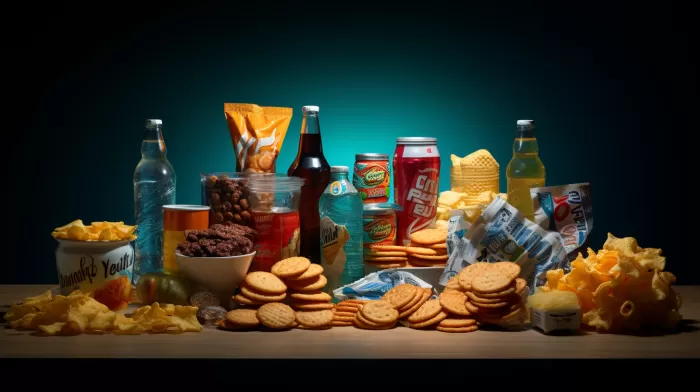Are you aware that the foods you consume daily could be just as addictive as illegal drugs? Researchers at the University of Guelph in Canada found that additives present in processed foods, such as high fructose corn syrup, fats, and sugar, could lead to addictive behaviors and make us more vulnerable to health issues such as weight gain, heart disease, and even cancer.
Sugar and Drug Addiction: A Shared Vulnerability
Addiction expert and associate professor of neuroscience and applied cognitive science at the University of Guelph, Francesco Leri, finds that laboratory animals developed preferences for sweet foods and cocaine, revealing a shared vulnerability between the two. Leri explored the behavioral, chemical, and neurobiological changes that occur from consuming processed foods, which showed convincing evidence that food addiction is real.
With children typically not considering the impact of sweets on their brains and behavior, Leri’s primary objective is to discover biological predictors of vulnerability that lead to excessive consumption of high fructose corn syrup.
The Neural Pathway to Addiction
The neural pathway that develops with addiction involves a neurotransmitter called dopamine. When you encounter something pleasurable, like eating sweets or taking drugs, dopamine is released in your brain, leading to feelings of pleasure and reward. This encourages you to repeat the behavior to achieve the same sensation. However, the dopaminergic response to rewarding stimuli decreases with repeated exposure, causing you to need more of the stimulus to experience the same pleasure.
This pattern is commonly observed in drug addiction, but studies suggest that there are similarities between the neural responses to sugar and drugs, indicating that they may share the same addictive pathway.
High Fructose Corn Syrup: A Highly Addictive Additive
A research study published in the journal American Psychologist found that high fructose corn syrup has become one of the most common food additives, used primarily as a cheap alternative to sugar in processed foods and beverages. However, this additive is also the primary source of calories in the US, contributing significantly to weight gain and obesity, which has links to heart disease, type-2 diabetes, and cancer.
High fructose corn syrup is widely present in processed foods such as soft drinks, candy, cereal, bread, snacks, and even some fruit juices and yogurts. As high fructose corn syrup is a major contributor to food addiction, it is crucial to monitor its consumption and limit the intake of processed foods.
How to Break the Cycle of Food Addiction
- Identify your triggers: Determine which foods cause cravings and avoid them. Keep a food diary to track your eating habits and identify any patterns in your cravings.
- Eat regular, balanced meals: When you’re hungry, you’re more likely to experience cravings and give in to temptations. Eating regular meals packed with healthy ingredients will help you feel full and satisfied.
- Healthy swaps: Substitute addictive food items with healthier options to satisfy your cravings without consuming empty calories. For example, opt for whole fruits instead of fruit juice, and choose whole-grain alternatives to refined grains.
- Exercise: Alongside helping you maintain a healthy weight, exercise can also help combat cravings by releasing dopamine in your brain.
- Seek support: If you find it difficult to control your food addiction, consider seeking professional help or joining a support group. Sharing your struggles can be a powerful tool in overcoming addiction.
Conclusion
Recognizing the addictive properties of everyday food additives such as high fructose corn syrup is critical to promoting better health and preventing chronic diseases. By becoming more conscious of the ingredients in our food and adopting healthier habits, we can break free from the grip of food addiction and lead healthier, more fulfilling lives.



